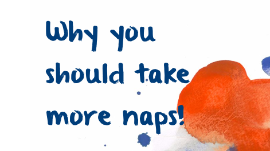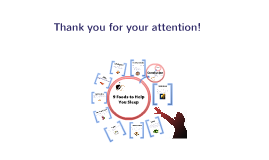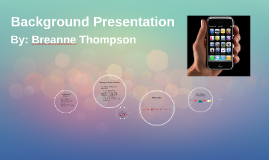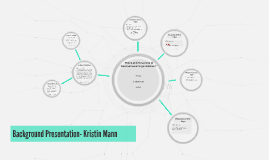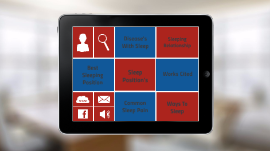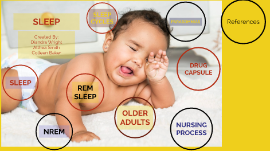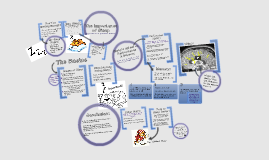Sleep Presentation
Transcript: Created By: Diandra Wright Althea Smith Colleen Baker SLEEP Altered state of consciousneess Minimal physical activity Variable levels of consciousness Changes in body's physical biological process (Berman & Snyder, 2016) SLEEP SLEEP Types of Sleep NREM (non-rapid-eye movement) Sleep REM (rapid-eye-movement) Sleep Sleep architecture; refers to the basic organization of normal sleep (Berman & Snyder, 2016) Types of Sleep FUNCTIONS OF SLEEP Sleep exerts physiological effects on both the nervous system and other body structures. Sleep restores normal levels of activity and normal balance among parts of the nervous system. Sleep is necessary for protein synthesis Sleep loss is related to mental deterioration in mental functions. (Berman & Snyder, 2016) FUNCTIONS OF SLEEP Occurs when activity in the RAS inhibited. (Reticular Activating System 75% to 85% of sleep occurs in NREM Divided in 3 stages (Berman & Snyder, 2016) NREM NREM Stages of NREM Sleep Stage 1 is the stage of very light sleep and only last a few mins. Feels drowsy and relaxed, eyes roll from side to side and heart and respiratory rate drop slightly. Stage 2 is when the body processes continue to slow down. Eyes are generaly still and heart and respiratory rate decrease Temperature falls Stage 3 is the deepest stage of sleep and also called delta sleep. Person is difficult to arouse Not disturbed by sensory stimuli and skeletal muscles relaxed. (Berman & Snyder, 2016) Stages of NREM Sleep Usually occurs every 90 mins and lasts 5 to 30 mins Dreams take place during REM Sleep Brain highly active High levels of acetylcholine and dopamine. Also called paradoxical b/c EEG resembles wakefulness. Distinctive eye movements occur, voluntary muscle tone is decreased, and deep tendon reflexes are absent. (Berman & Snyder, 2016) REM SLEEP REM SLEEP SLEEP CYCLES People typically pass through NREM and REM sleep and the complete cycle usually last 90 to 110 mins in adults Adults pass through first two stages of NREM in 20 to 30 mins Stage 3 last 50 to 60 mins After stage 3 NREM sleep passes back through stages 2 and 1 over about 20 mins REM starts and last about 10 mins Healthy adult usually experiences 4 to 6 cycles of sleep during 7 to 8 hrs. During the early part of the night deep sleep periods are longer. (Berman & Snyder, 2016) SLEEP CYCLES PARASOMNIAS PARASOMNIAS Behaviors that interfere with your sleep pattern and may occur during sleep. Bruxism; Clenching and grinding of the teeth. Enuresis; Bed wetting during sleep Periodic limb movement disorder; Legs jerk twice or 3 times per min during sleep. Sleeptalking; Talking during sleep occurs during NREM sleep and before REM sleep. Sleepwalking (Somnambulism); Usually occurs 1 to 2 hrs after falling asleep. (Berman & Snyder, 2016) Sleep Apnea; Occurs while sleeping and is characterized by frequent short breathing pauses during sleep. Insomnia; Inability to fall asleep or remain sleeping for long periods of time. Hypersomnia; When you get sufficient sleep at night but still cannot stay awake during the day. Narcolepsy; Excessive daytime sleepiness. (Berman & Snyder, 2010) Other Sleep Disorders Other Sleep Disorders SLEEP DISORDERS Narcolepsy According to an article H1N1 vaccine may be connected to narcolepsy in some pt’s in Scandinavia Insomnia More prevalent in older adults and women. In women it is more prevalent at the onset of menses and menopause. Sleep Apnea Has been associated with stroke in middle age and older adults especially men. (Howel, 2012) (National Heart, 2018) (Thomas, 2007) SLEEP DISORDERS Culture In Japan sleeping on the job is consider a badge of honor. Inemuri means "sleeping on duty" and has been around for at least 1000 years. People in Japan sleep less than 6 hours a day. Japan has a work culture that demands long hours and little time away from the office. Employees are allowed to nod off for a few mins to a few hours. Guidelines; Posture must be upright throughout your powernap. You have to sit as if you are listening intently while napping. (Venn, 2011) (Japan, 2017) Culture Quality of sleep often diminished in older adults. Older adults 65 to 75 usually awaken 1.3 hrs earlier and go to bed approx 1 hr earlier than younger adults The need of sleep does not diminish with age. During sleep older adults have flattened-circadian rhythm. (Berman & Snyder, 2016) OLDER ADULTS OLDER ADULTS SLEEP INTERUPTIONS Medical conditions and pain Side effects of medications Older adults experience sundown syndrome which disrupts sleep Gastric reflux disease Respiratory and circulatory disorders which may cause breathing problems or discomfort. Pain from arthritis, increased stiffness, or impaired immobility Loss of life partner and close friends (Berman & Snyder, 2016) SLEEP INTERUPTIONS Reduce or eliminate the consumption of caffeine and nicotine Make sure older adults environment is warm and safe Provide comfort measures, such as analgesics if indicated and proper positioning Enhance sense of safety and






